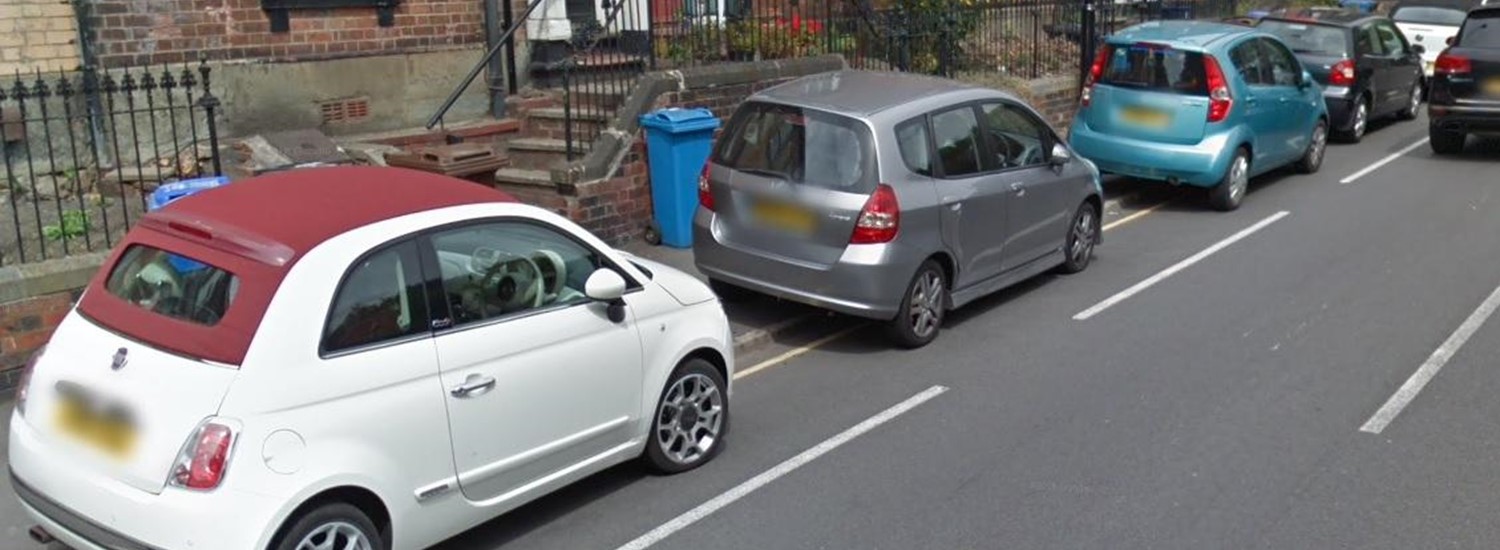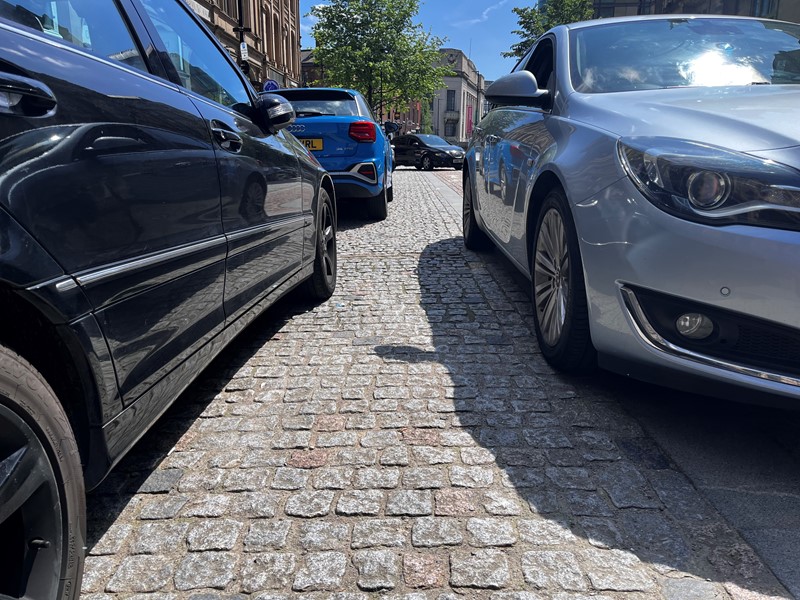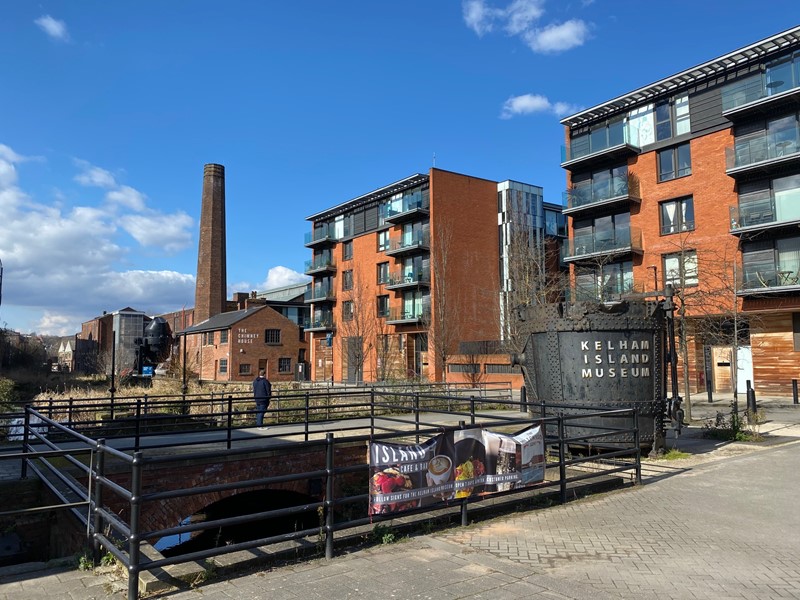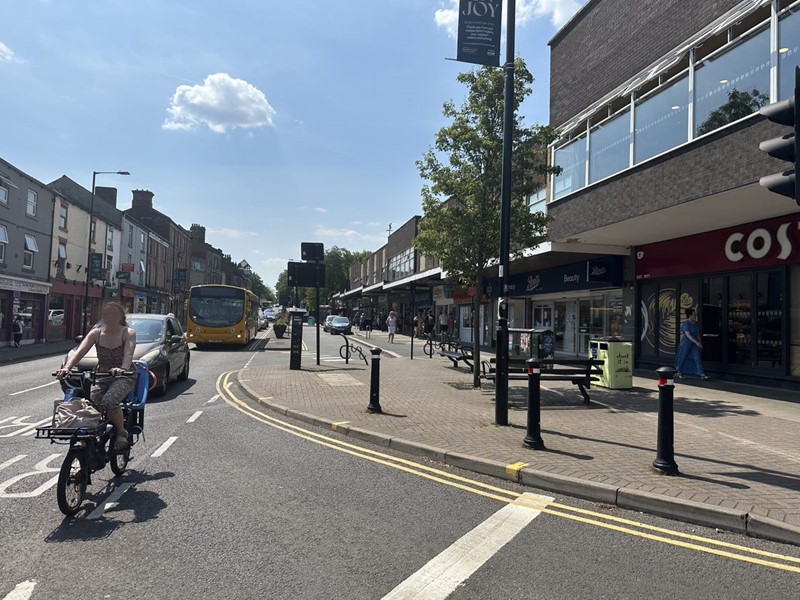
cars parked on a street
Sheffield City Council has called for more powers to enforce against pavement parking as pressure mounts on the government to tackle the problem.
Obstructive pavement parking presents dangers for people with disabilities or mobility restrictions, and for parents with buggies. It can also be dangerous for cyclists as cycle lanes often run next to or on the footway.
The Council has submitted written evidence to the Transport Committee’s Pavement Parking Inquiry, saying it wants to find a “flexible solution” to tackle problematic and perilous parking.
It urges the government review to give more powers to enforce against poor pavement parking.
The council can already enforce pavement parking where there are double or single yellow lines, or where a clearway restriction exists.
However, these restrictions also prevent parking on the road too. There are many parts of the Sheffield’s roads where installing such restrictions would generate other problems.
For example more than a quarter of Sheffield’s housing is terraced with narrow streets and little opportunity for creating off-road parking. On these streets, some sensible pavement parking would be very welcome for residents.
Currently, residents only have the option of contacting the police to request they deal with vehicles obstructing the foot way. Police often don’t have the resources required to prioritise these requests over serious crimes. This can lead to frustration for residents.
A flexible solution, based on an offence of obstruction, would see pavement parking being actively managed on many of Sheffield’s narrow roads so that footways are freed up for all pedestrians.
The Council would look to set its own policy to support any new powers; one that is clear and transparent. This would provide positive guidance to all drivers on where they could safely park, but also where poor parking would see enforcement.
Councillor Bob Johnson, Cabinet Member for Planning and Development said: “I’ve only been in post for a few weeks but it is clear to me that we need more powers to tackle pavement parking.
“Pavements should not be for parking and far too many people are taking shocking decisions, often where there is no need to do so. I’ve asked officers to step up patrols and activity wherever possible but accept that they often don’t have the full set of enforcement options available to them.
“It is hard to impose a total ban on pavement parking however, because the nature of many of Sheffield’s roads means that parking partially over a kerb is often seen as unavoidable.
“But this should not be seen as an excuse across the city. I am calling for clarity and a series of standards that can be enforced and will be reviewing the council’s current parking enforcement policy.
“I am today calling on government to do more to help us tackle this problem on the streets of Sheffield.”
The council’s is taking action under the powers currently available to it. For example the parking strategy has already endorsed a city centre pavement parking ban which will be developed this year. In addition the strategy highlights a review of existing controlled parking zones, such as the schemes in Broomhill and Hillsborough, and introduction of new zones close to the city centre which will help address some of the current issues.
In addition the strategy highlights a review of existing controlled parking zones, such as the schemes in Broomhill and Hillsborough, and introduction of new zones close to the city centre which will help address some of the current issues.
Read more here: https://www.parliament.uk/business/committees/committees-a-z/commons-select/transport-committee/inquiries/parliament-2017/pavement-parking-17-19/publications/
Notes to editors:
There are 6,358 streets within the authority, including adopted, part adopted and un-adopted roads.
There are around 1500 km of B class, C class and unclassified roads. These roads are the ones where a pavement parking ban would have most impact.
Assuming only 40 per cent of these roads might be suitable for permitted pavement parking; this would result in 1200 km of footway that would need a formal assessment to determine the suitability of any pavement parking currently taking place.




